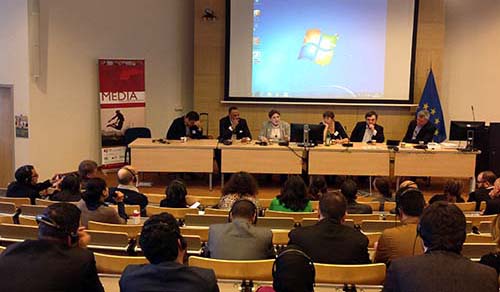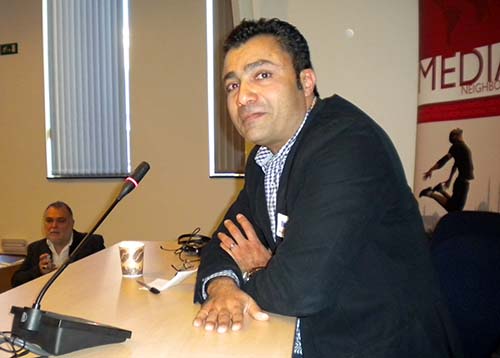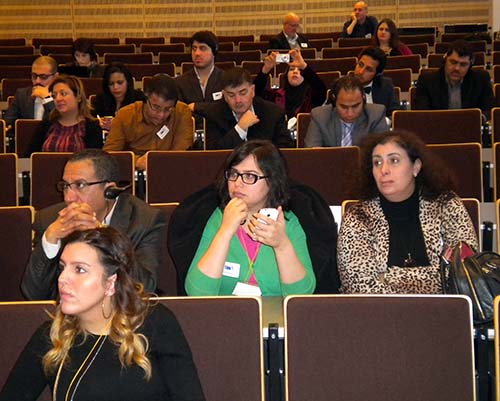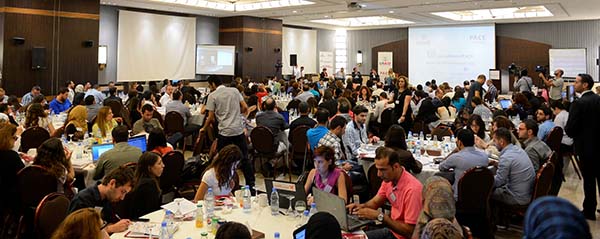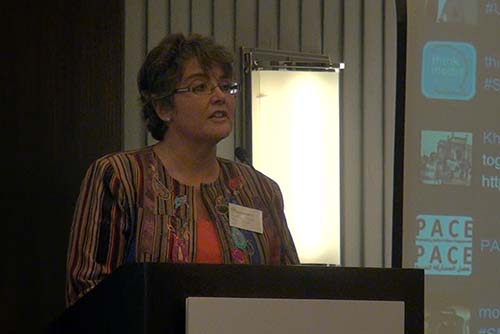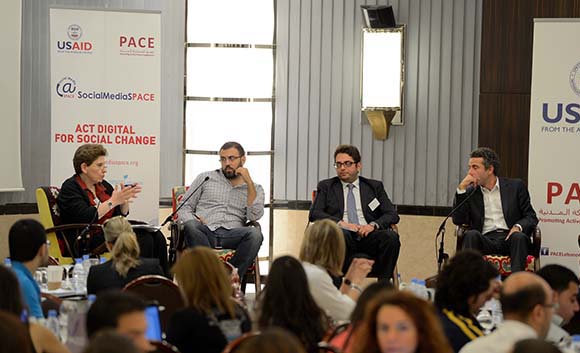Media Unlimited director Magda Abu-Fadil told an audience in Brussels that training journalists should be given adequate time to improve their skills, in all fairness to them and their instructors.
She was referring to a series of brief workshops for traditional journalists and bloggers from Morocco, Tunisia, Libya, Jordan, Palestine, Egypt, Lebanon, Syria and Georgia in which she co-trained with BBC veterans Russell Peasgood and Jim Fish.
Abu-Fadil spoke at the Media Neighborhood Journalism Awards in the Belgian capital in February 2015 – a culmination of a project funded by the European Union and delivered by a consortium led by BBC Media Action.
Abu-Fadil was involved in the latter part of a process that provided initial training and subsequent writing and producing assignments for various media.
Being fully functional in English, Arabic and French enabled her to assess the final products in those languages, with the majority being in Arabic. But in the case of Georgia, it was a bit challenging since print, online and broadcast reports were in Georgian or Russian, forcing her to rely on English translations.
On the plus side, Abu-Fadil and her colleagues emphasized and instilled in the trainees a sense of what solid journalism is, and should be.
They hammered away at the importance of proper and diverse sourcing, balance in presenting various sides in a story, ethical considerations, newsworthiness and accuracy.
They also stressed the importance of the correct use of language, grammar, attention to translated material, ensuring numerical data are presented in the proper context, writing strong leads and avoiding opinions in hard news reports.
Abu-Fadil reviewed obstacles journalists and bloggers faced in the countries they represented and how constraints were reflected in their work.
The Syrians encountered problems in verifying information and assorted dangers while reporting from the field in their war-torn country.
Lebanese media saw a decline in their ability to function freely while Palestinian journalists also faced safety and access to information problems.
Jordanian journalists also had to deal with increasingly stricter rules and laws, notably those related to online media.
Egyptian journalists had to contend with the country’s roller coaster ride from a 30-year dictatorship to interim leaderships and elected presidents, which resulted in an interesting mix of reports mirroring the state of affairs.
Ditto for Tunisian participants who hailed from the trigger of the so-called “Arab Spring.” They had also been conditioned to think and operate a certain way and were adjusting to their own transitional phase of government, which came out in their reports.
The Moroccan journalists had their own set of political issues but were also cautioned to avoid bias, to focus on the real story, and to sidestep long-winded rhetoric.
The least fortunate were the Libyans whose freedom had been locked up for four decades as was their lack of understanding of what journalism is.
The awards program was held at the European Commission and grouped trainers, trainee award winners, mentors, and consortium representatives.
The full training project targeted journalists from Algeria, Armenia, Azerbaijan, Belarus, Egypt, Georgia, Jordan, Lebanon, Libya, Morocco, Moldova, Palestine, Syria, Tunisia and Ukraine.

